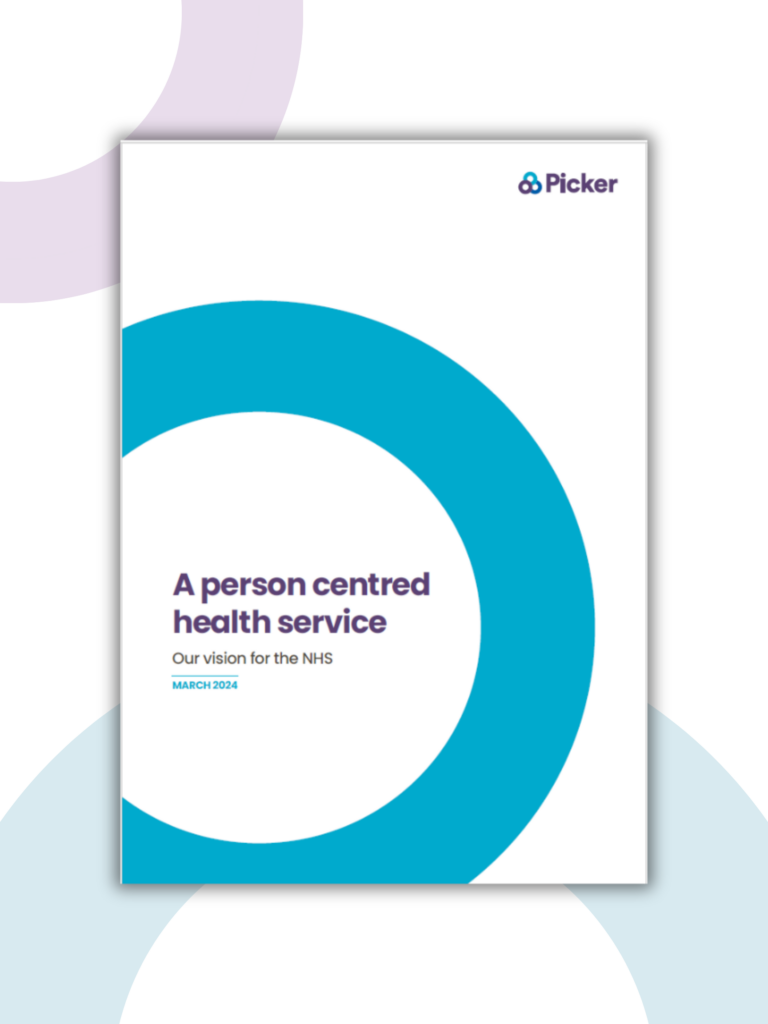Working in partnership with families to develop a coordinated plan of care for their child
How did the journey start?
Co-production is an important part of Wirral Community Health and Care NHS Foundation Trust’s engagement strategy so Always Events® have been embedded within their strategic priorities. The Trust successfully implemented their first Always Event in 2017-18 which improved service users’ awareness of, and access to, the school nursing service. Staff within the Children and Young People’s Services were keen to use the Always Event approach again to work in partnership with their service users to drive further quality improvements. The families of children with complex health needs were identified as an important cohort for improving their care experiences. The team knew from both local and national feedback it is often difficult for parents to manage and coordinate the number of appointments offered to a child with complex needs. It was also recognised that due to the Covid-19 pandemic there was a need to consider how technology can be used to offer remote appointments.
What mattered most to service users?
The team contacted 30 families of children with complex health needs (who were accessing three community therapy services) to find out what matters most to them. From the feedback gathered through a survey, the following themes were identified as important:
- An individual plan of care for their child
- Knowing who to contact and being able to contact them
- Not having to explain things to lots of different people
- Having co-ordinated and planned care
- To be involved in planning care
- Having access to information and resources to support their child at home
A smaller group of parents who were interested in supporting the improvements were recruited by frontline staff. A focus group was conducted with them, and it was agreed that the Always Event should focus on providing children with a coordinated plan for their care.
Our family will always feel involved in developing my coordinated therapy care plan.
Vision Statement
Implementing and testing change
A task and finish group was developed to explore how best to develop the pilot. Staff and families discussed and agreed what changes could be introduced to enable children to have a coordinated plan of their therapy care. The change ideas developed were:
Integrated therapy care review meetings
Practitioners from different therapy services (Speech and Language Therapy, Dietetics and Continence) engage with children and their families at the same time via Attend Anywhere – a secure NHS video call service.
Integrated electronic record template
Develop an integrated template on SystmOne to enable all services to contribute to the assessment and ensure a consistent approach to recording therapy outcome measures across all therapy areas.
Integrated care plan
The electronic care plan integrates the care received from different therapy services and can be shared with all relevant parties, such as GP, education, social worker.
Lead health professional to co-ordinate care
This role coordinates the child’s care and provides a point of contact for the family.
Integrated care review meetings were piloted with 36 children and families and feedback on their experiences was collected via a survey. To check on the reliability of the integrated care plan being used and completed, the team leader audited 10 records. This showed that 8 records had evidence of a full integrated care plan. The remaining 2 records had care plans, but they were not integrated into one template or report for sharing.
Achievements
The feedback gathered from families involved in the pilot, and the audit of the electronic records, showed that the Always Event aim statement had been met; most families (85%) reported a positive experience of the integrated review meetings and had a coordinated care plan for their child.
Families were positive about the integrated care review meetings, despite a few experiencing some technical difficulties initially. Parents commented on the time and effort saved due to a reduction in the number of different appointments, the usefulness of having the different healthcare professionals together so that they had a clear understanding of their child’s care and that they appreciated not having to repeat themselves.
Feedback was also collected from staff to understand their experiences of implementing the Always Event. This showed that staff welcomed being able to work more closely with other healthcare professionals and that this resulted in a better understanding of colleagues’ roles, facilitated better communication, and meant care plans could be integrated and person-centred.
Key learnings
Co-production
Co-production is a different way of working and can require a ‘cultural shift’; it can be difficult to explain the Always Event ethos to staff. The team are working across the organisation to strengthen the understanding of their workforce around co-production and engagement through internal training provided by NHSE&I.
Staff time
It can be challenging for staff to find the time to work on the Always Event. The team found that having the Lead for Quality helped to keep the Always Event on the team’s agenda.
Aim statement
It is important that the aim statement is both measurable and achievable.
Measurement
Being able to measure the impacts of the Always Event is key to providing evidence of its success.
Staff engagement
Ensuring that staff are fully onboard with the Always Event is important.
Next steps
Due to the quality improvements and efficiencies that have resulted from the integrated care review, the team are confident the Always Event will be developed and spread within their own services and beyond. Integrated review meetings have already been rolled out to
other 0-19 Health and Wellbeing Services, including Specialist School Nursing and are likely to include external children’s services in the future. The team will monitor the sustainability of this new service through their divisional governance infrastructure, including patient experience, therapy outcome measures, record-keeping audits, non-attendance records and staff feedback.
